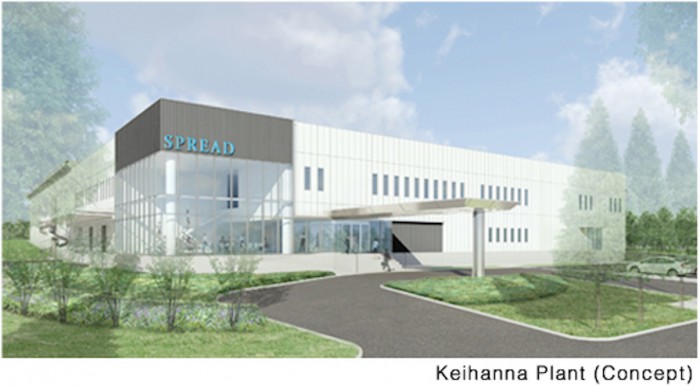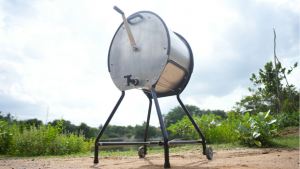SPREAD, the Japanese firm known for their innovations in the field of agriculture, have revealed plans to open the world’s first robot-controlled farm. Called the Vegetable Factory or the Keihanna Plant, the indoor facility is expected to produce 11 million heads of lettuce each year, and it’s expected to ship its first crop in Fall 2017.
The automated cultivation system will be based at Kansai Science City. Its establishment will usher in a number of new technologies such as automated cultivation, water recycling systems, specialized LEDs for vegetables created in-house, and an air-conditioning control system.
The system will also significantly cut labour costs by 50 per cent, energy costs by 30 per cent, and construction costs by 25 per cent. This is compared to the costs of the company’s Kameoka Plant which produces 21 000 heads of lettuce per day.
“SPREAD is taking on the challenge of making possible to produce locally grown vegetables anywhere in the world by putting efforts in the development of a system that makes global expansion of these factories a possibility by using a concept that is environmentally friendly at a low-cost,” reads the company’s website.
To ensure the system is environmentally friendly, SPREAD developed low-cost LED lighting in-house. These lights use less energy and are described as highly efficient. The company also created a recycling, filtering and sterilisation system with the goal of recycling 98 per cent of the water used.
The water filtration system reduced the amount of water required per head of lettuce down to 0.11 litres compared to the 0.852 liters used at their Kameoka Plant. Lastly, an air conditioning system developed by SPREAD will make it possible to grow vegetables anywhere in the world in an ideal environment.
The concept was created to address global food shortages and the impact that farming has on the environement. "There are water and food shortages due to extreme weather events accompanied by the increasing global population," says the company. "Amid these problems, SPREAD has effectively managed energy through the Vegetable Factory business and has been working to lay the foundation for a more secure and sustainable society."







